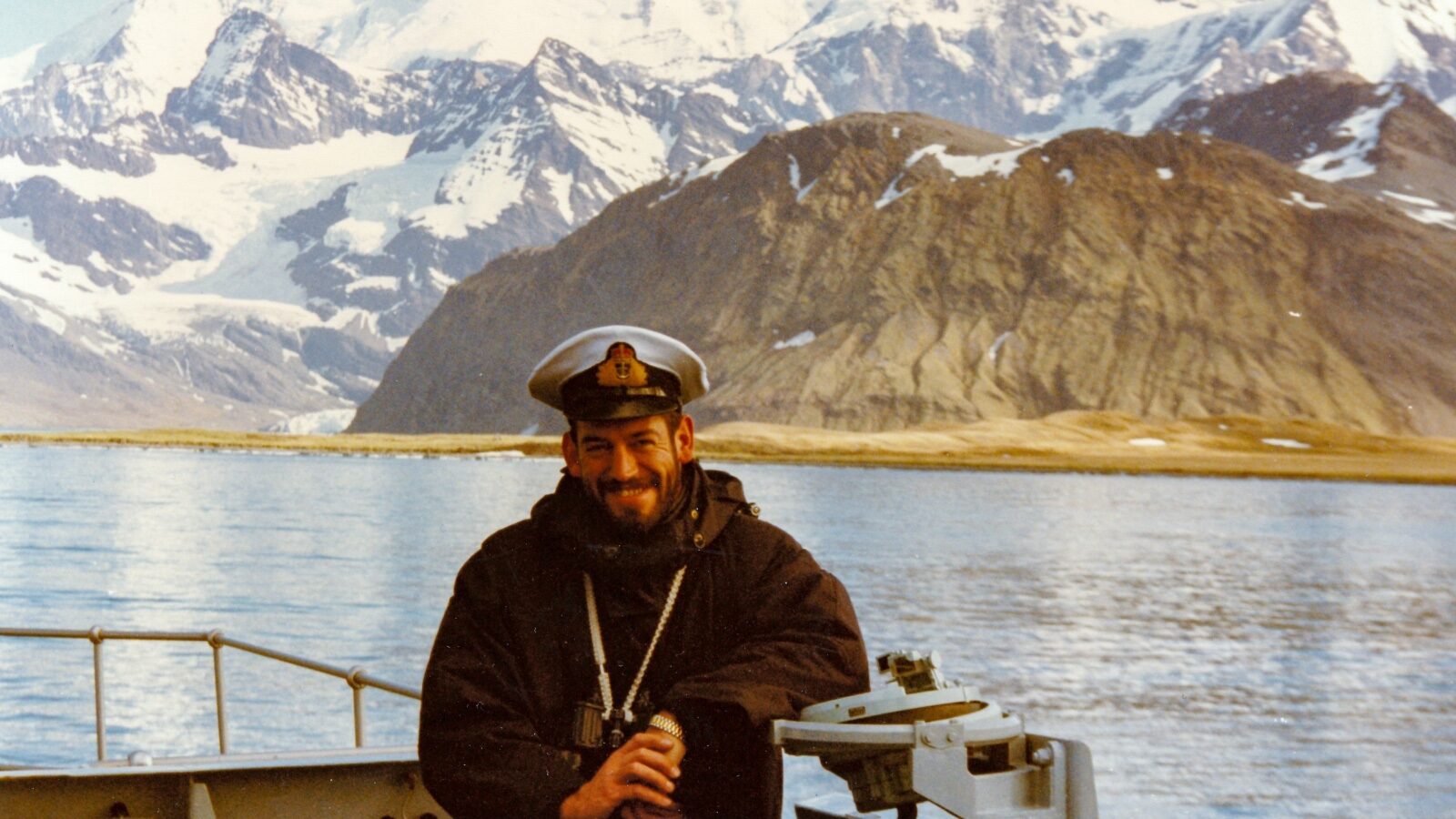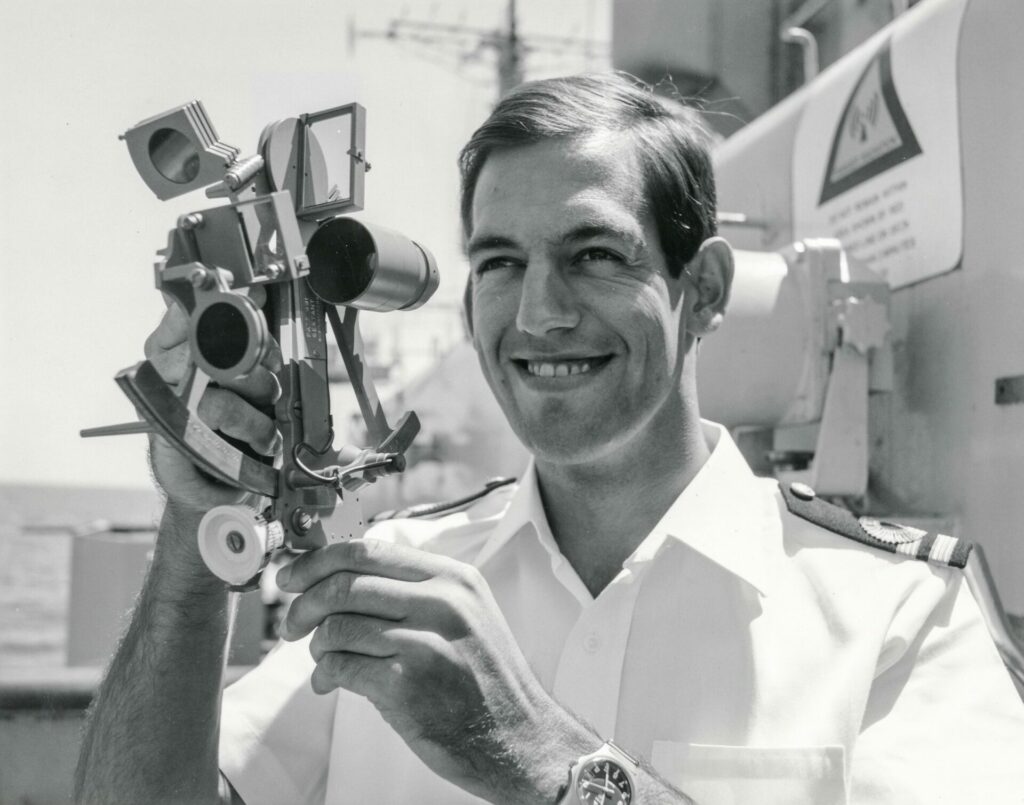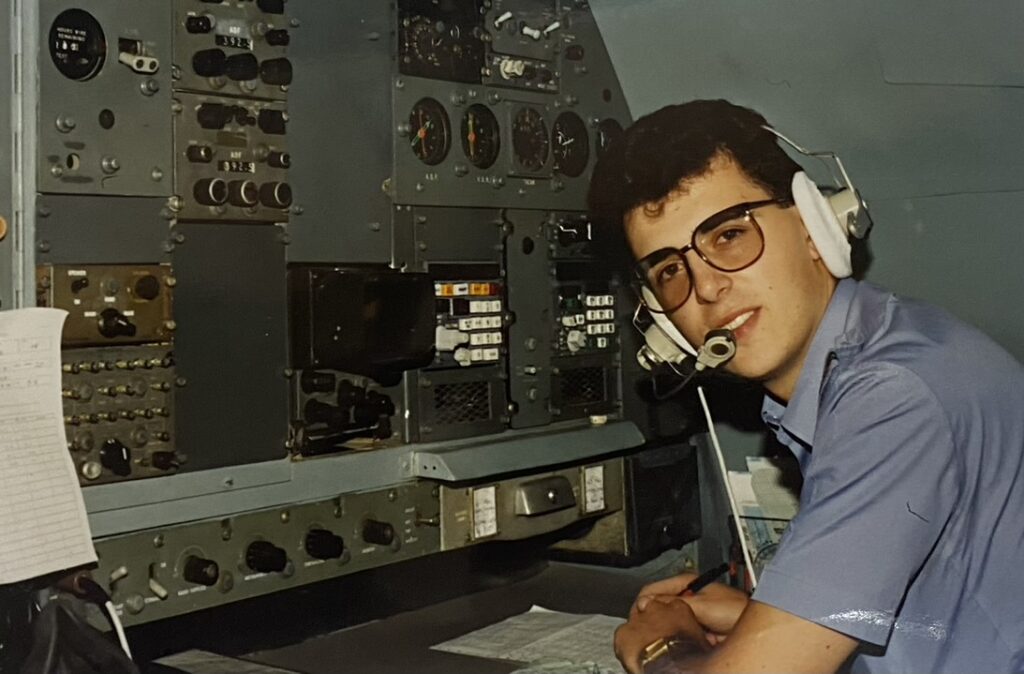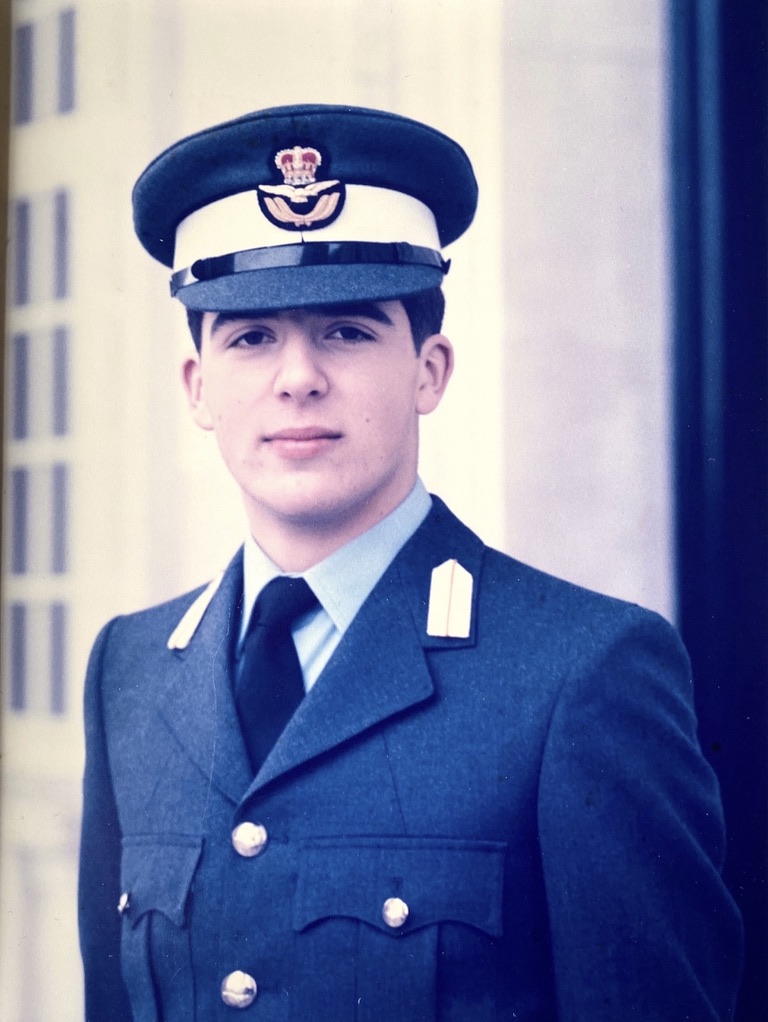‘Lives were ruined’: 25 years after Armed Forces ‘gay ban’ repeal, LGBTQ+ veterans share their memories
12 January marks the 25th anniversary of the lifting of the Armed Forces’ ‘gay ban’ which prohibited all LGBTQ+ people from serving in the military
By Gary Grimes

Stepping aboard the HMS Wellington on this crisp winter’s day, I was reminded of the vessel’s impressive history. Though docked on the Thames since 1948, it was in battle for almost the entirety of World War II. Since then, aside from being an iconic landmark on the riverbank, it serves as an event space for private functions and also many military events and celebrations.
It was a warm welcome once I scurried over the bridge and through the ship’s double doors, greeted first by a friendly member of staff who offered to take my coat, before being ushered past the ship’s grand staircase and eventually to its wardroom. Feeling perfectly at ease in my surroundings, I couldn’t help but think of the countless men and women of the armed forces who may have sat precisely where I was sitting over the years but found themselves grappling with feelings of extreme fear, shame and anxiety, not least because they may have been at war but also because to be their true, authentic selves in such a setting would put them in grave peril.
12 January 2025 marks the 25th anniversary of the lifting of the armed forces’ ‘gay ban’ which prohibited all LGBTQ+ people from serving in the military, 32 years after homosexuality was decriminalised in all other walks of UK life in 1967. Such a result came about after years of campaigning and legal action led by Rank Outsiders, a group of ex-military personnel who had been ousted after their sexuality was discovered. The decision came at the hands of the European Court of Human Rights which ruled the policy should be overturned, following multiple failed attempts to get the ban lifted in both the UK High Court and in Parliament.
At every step of the campaign, the Ministry of Defence fought valiantly to defeat the group’s efforts. Today, some 25 years later, it is the Ministry of Defence who have invited me here to speak to a group of LGBTQ+ veterans and current serving personnel to discuss their experiences working in the armed forces both before and after the ban was lifted.
“I had friends who came out straight away, commanding officers, and had a mixed reaction so I was cautious”
Roly Woods only retired as a Commander in the Royal Navy in August last year after an admirable 46 years of service. A proud gay man who tells me he has enjoyed many the Pride celebration in his hometown of Brighton, he has a relatively unique perspective, having served for over 20 years undetected under the ban, followed by another 24 years of service after it was lifted in 2000. “I had 20 years plus living that double life, looking over your shoulder, the really quite stressful and dark times,” he tells me. Casting his mind back to 2000, Roly recalls it being somewhat of a gradual change in atmosphere after the ban was lifted. “I had friends who came out straight away, commanding officers, and had a mixed reaction so I was cautious.”

“I think probably the majority weren’t that fussed beforehand but clearly, there was a hard core that absolutely were,” he explains, noting that right up until the year 1999 he observed very senior officials expressing deeply negative views about homosexuality and the prospect of the ban being lifted. “It took a while to gain my trust.” Roly can still remember the moment Geoff Hoon, then-Secretary for Defence announced the ban would be lifted to a recalcitrant House of Commons. “They were not keen. They’d been told by the European Court to do it and they made it very clear that they were doing it because the court had told them to, not because they wanted to,” he recalls. “So that was not exactly encouraging.”
Although he was distinctly aware of the risks associated, Roly explains he had been maintaining a very happy home life whilst the ban was still in place which included a cohort of gay friends and a long term partner. Wood’s ability to maintain this double life was largely predicated on the fact it existed in Exeter, sufficiently far away from the military community. Just one small slip up and his career and life could well have come tumbling down, to which many of his peers in the forces can attest.
“From that moment, every morning I would wake up thinking, ‘Oh God, is today going to be the day?’ This ticking bomb is just waiting for me.”
In June of 1994, Kevin Bezeley, a flight lieutenant in the Royal Air Force, lost his wallet. A nuisance for anyone but Kevin understood that for him, this mistake would likely carry dire consequences as he knew that inside that wallet was a membership card for the Gay Bikers Motorcycle Club with his signature on the back. “From that moment, every morning I would wake up thinking, ‘Oh God, is today going to be the day?’ This ticking bomb is just waiting for me.” Sure enough, roughly seven weeks later the lieutenant landed from a training mission to be greeted by his boss who promptly arrested him on the aircraft.

Kevin’s slip up came despite him taking great care to keep his identity as a gay man under the radar. “I actually met someone 500 miles away,” he said. “I’m thinking that’s probably the right sort of distance where I’m not going to be seen going into the wrong establishment.” Kevin recalls memories of a life spent constantly looking over his shoulder. “Every time you went away, you were thinking I can’t go in there because that’s a known gay bar. They could be watching—because they were. The Special Investigation Branch were watching those venues for people who looked military.” The lengths the military went to catch and prove that personnel were homosexual are well documented. In Forced Out, a 2023 documentary on Sky, viewers heard harrowing accounts of ousted veterans having their homes searched by military policemen wearing latex gloves, their literal dirty laundry rifled through, personal letters confiscated, interrogations which could last for days, and in some cases even imprisonment.
“These are cold war interrogators. They trained to interrogate spies and the enemy, and now interrogate people for being gay”
After the torture of seven weeks waiting to be discovered, Kevin eventually found himself under interrogation. “I had a day or so in an interview room with a squadron leader from the Special Investigation Branch going over and over again, really personal questions,” he remembers. “Who are you having sex with? What activities are you getting up to? Where are you doing this? Who else do you know in the armed forces?” Perhaps one of the saddest elements of this process was how the SIB would attempt to persuade officers in questioning to inform on other personnel they knew or suspected to be queer. “They were actively searching for others. It was like, they got you, that’s great, one notch on the belt, but they wanted you to take them to other people.” It’s worth bearing in mind also that this was no gentle inquiry from HR: “These are Cold War interrogators,” Roly points out. “They trained to interrogate spies and the enemy, and now interrogate people for being gay. It’s really brutal.”
In some especially horrifying cases, veterans have recounted being forced to undergo anal examinations as part of the SIB’s attempts to ‘prove’ their homosexuality. “I didn’t have a physical examination, but I was ordered to come down to London and see a psychiatrist,” Kevin explained. “It made me angry. It humiliated me, to have to go and explain to someone that you’re gay and you like to have sex with men and for them to ultimately say, ‘Oh yes, it’s perfectly normal but it’s incompatible with the military’. It was just nonsense.

“I was effectively put on house arrest in the officer’s mess where I was living whilst they sorted out my paperwork, but then it was get off the camp,” Kevin recalls of the end of his time in the RAF. “Effectively, I was homeless.” The position Kevin found himself in will be familiar to many other LGBTQ+ veterans who were left homeless, jobless, and without a pension or any support to help them reintegrate into society, after years or even decades of service in some cases.
Late last year brought the announcement of the LGBT Financial Recognition Scheme which will see the UK government pay up to £70,000 each to LGBTQ+ veterans in acknowledgement of the wrongs they experienced whilst enlisted with the Armed Forces. Upon hearing of the trauma and abuse endured by so many of these loyal, hardworking veterans, I can’t help but question – is this sufficient? Can you put a price on that sort of suffering?
“People’s lives were ruined. They were traumatised. You can’t compensate for that”
“It’s not enough money,” Kevin responds. “But what we need to remember is, it’s not a compensation scheme. It’s a recognition that they did wrong. It won’t make up for what people have lost in terms of the salaries, pensions, the career impact, homelessness, but it is better than nothing, and four years ago, that’s what veterans had.” His sentiments are echoed by Roly who adds: “I was lucky, you know, I got away with it. But people’s lives were ruined. They were traumatised. You can’t compensate for that.”
Such a scheme exists now because of the work of Fighting With Pride, a charity which was established to support LGBTQ+ veterans. The work of that charity brought about the Etherton Review into the treatment of LGBTQ+ veterans. The review, published in 2023, came with 49 recommendations, of which financial award was one. Also recommended in the review was a formal apology to veterans which came on 19 July 2023 when then-Prime Minister Rishi Sunak spoke to the House of Commons about the “appalling failure of the British state” in its treatment of LGBTQ+ people in the armed forces. He went on to apologise for “the most horrific sexual abuse and violence, homophobic bullying and harassment,” endured by many, “all while bravely serving this country.”
A truly historic day, as acknowledgement and an apology is issued in the House of Commons on behalf of the British State by Prime Minister @RishiSunak.
— Fighting With Pride (@fightingwpride) July 19, 2023
23 years since The Ban was lifted. 🏳️🌈🏳️⚧️🇬🇧 pic.twitter.com/KzSsDmeG1G
It was a momentous occasion and a hard won victory for those who have been fighting since the 1990s for justice. Duncan Lustig-Prean, a one time lieutenant commander in the Royal Navy who was dismissed after he reported he was being blackmailed for being gay, was one of many people celebrating on that day in 2023. Lustig-Prean, who also served as an advisor to Lord Etherton as he compiled the review, did comment at the time however that he was of the belief that as LGBTQ+ veterans had sworn loyalty to the sovereign, an apology from the King himself would be appropriate.
“At the end of the day, the royal family are above that kind of thing,” Kevin opines when I put the idea to him. “It will be very difficult, constitutionally, I think, for the King to come out and give a direct apology. If you have a way to do it, it will be very well accepted.”
“I don’t think we should underestimate or devalue the scale of the apology from the Prime Minister in the House which was a huge event for all LGBTQ+ veterans,” Roly offers. He also notes that Ben Wallace, former Secretary of Defence, spoke about the issue at length in his farewell speech. “We thought he might reference the issue. The entire one hour farewell speech was dedicated to LGBTQ+ veterans, again, which was huge.”
“I don’t have to hide myself or my sexuality, I get to do my job without those pressures”
On Wednesday night, we were honored to participate in the annual LGBT History Month event at the Speakers House. Our Deputy Advocate and Co-Chair proudly represented the RAF, fostering meaningful dialogue with our sister Services and community networks. pic.twitter.com/yJssoJifMg
— RAF LGBTQ+ Network (@RAF_LGBT) February 9, 2024
Today, Kevin and Roly will help judge the shortlist of artists who have put forward designs for the LGBT+ Armed Forces Community Memorial, along with Sgt Antony Stafford-Boutwood, who is currently serving with the RAF and is also the Chairman of the RAF LGBTQ+ Network. Last year he was nominated for an LGBTQ Defence Award. The sheer existence of a queer network within the RAF and of such an award is clearly a huge testament to the progress that has been achieved in the years since Kevin’s time with the RAF sadly came to an abrupt end. “It really shows how far we’ve come since those days back pre-2000,” Anthony agrees. “I don’t have to hide myself or my sexuality, I get to do my job without those pressures.”
Serving With Pride by Craig Jones is a book of stories from LGBTQ Armed Forces veterans about their remarkable lives. It is available to purchase from all major retailers now, with proceeds going to Fighting with Pride.
